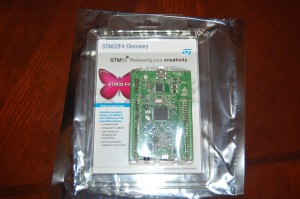I spent a good chunk of today getting frustrated with my AVC code. I have custom firmware on my GPS so that it sends a fixed-length binary sentence to my microcontroller. Rather than polling the USART, or handing an interrupt every time a character comes in, I figured this is a perfect application for the DMA controller... tell the DMA controller how many characters there are, and have it wake up my code when I receive a full GPS sentence.
Well, during debugging, I found that my DMA IRQ was being handled once, but I couldn't get it to trigger a second time. After wrestling with this for hours, I finally thought, what if the second DMA interrupt really is happening, but because I've got the CPU stopped at a breakpoint, I'm missing it?
So, I took out my breakpoint and instead threw a character out the USART every time the DMA IRA was called. And lo and behold, I got a DMA IRQ five times a second, which is just how often the GPS is sending me data.
Embedded programming can be so frustrating.
